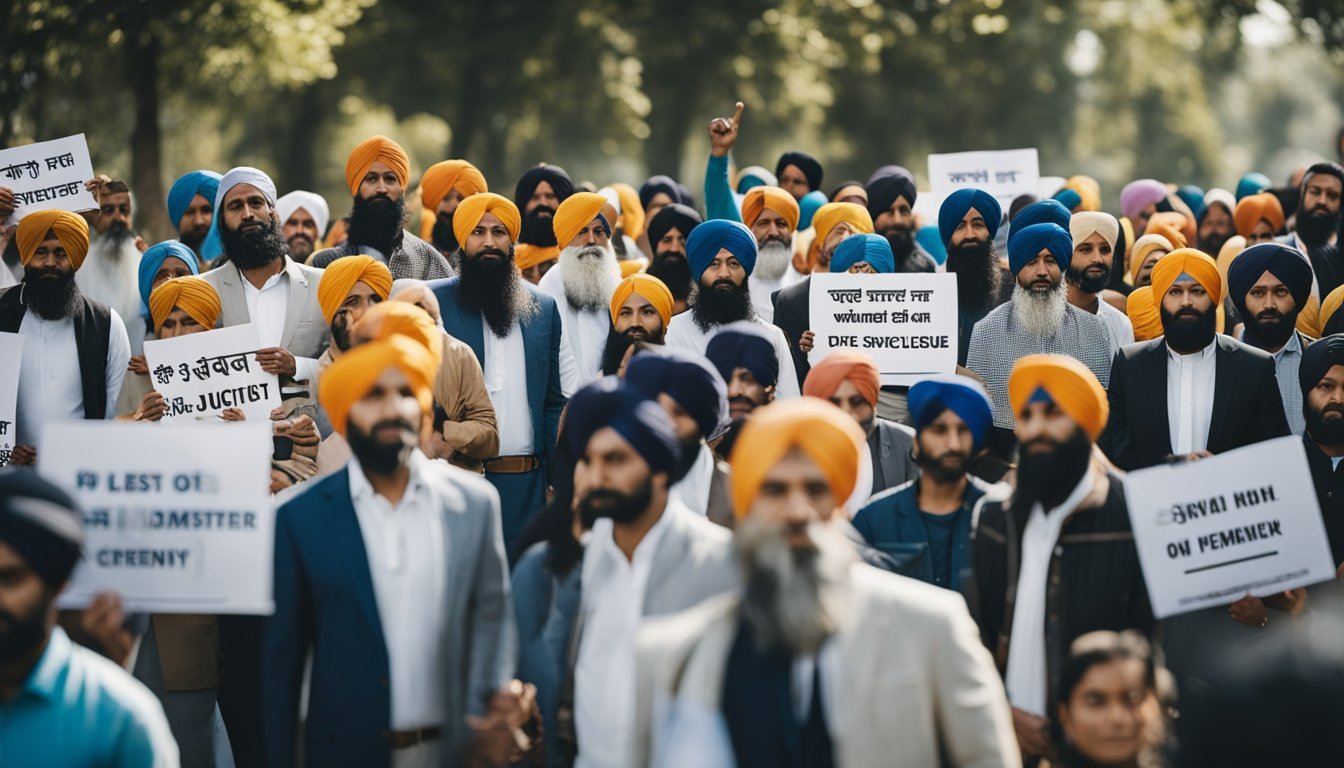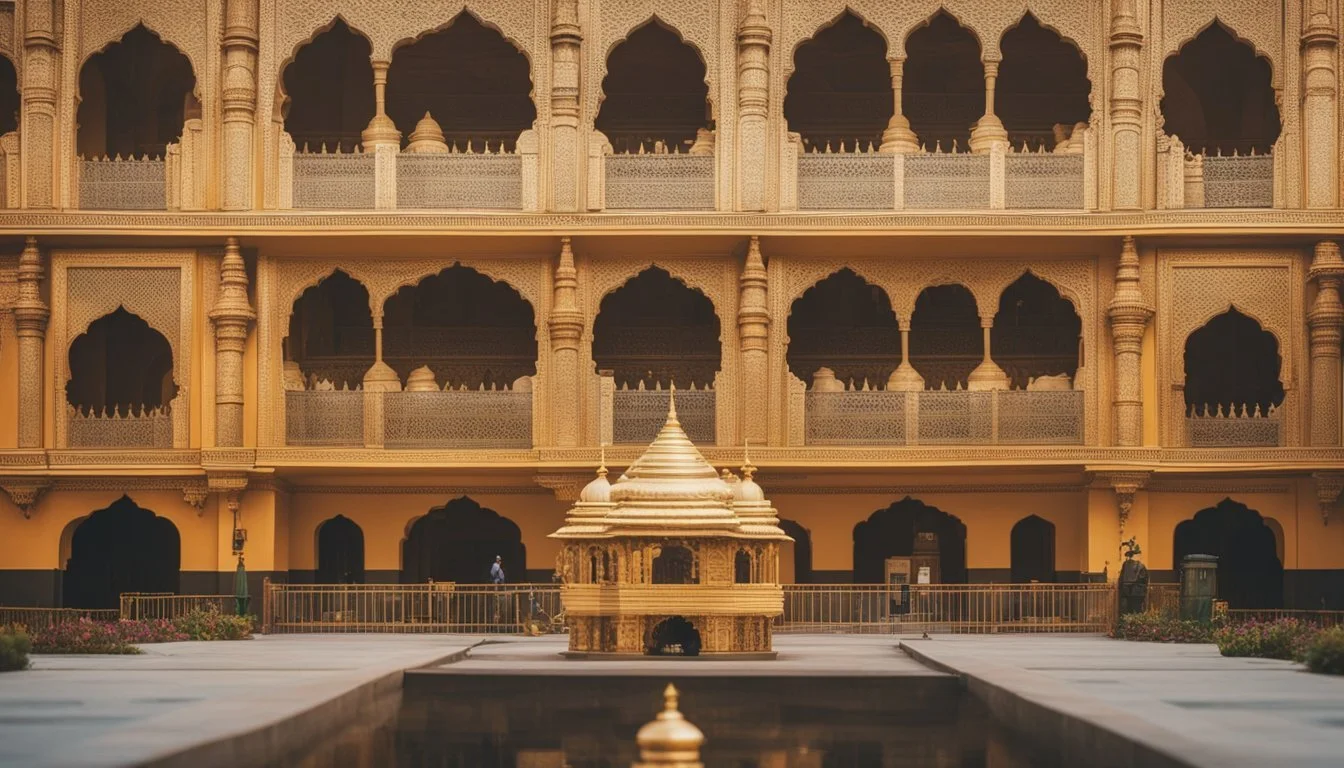6 Captivating True Crime Documentaries About Sikh Communities You Must Watch
True crime documentaries offer a window into the darker aspects of human society, and when centered on Sikh communities, these films shed light on both the resilience of these communities and the challenges they face. With a focus on real-life events, these documentaries explore various crimes that have impacted Sikh individuals and their communities, from hate crimes to legal battles.
What makes these documentaries particularly compelling is their ability to provide a voice to those who have been affected in ways that are rarely covered by mainstream media. This collection of true crime stories not only offers insight into specific incidents but also highlights broader societal issues, pushing viewers to confront uncomfortable truths and recognize the importance of empathy and understanding in a diverse world.
1) Anita's Truth (2022)
Anita's Truth exposes the harrowing experiences faced by a Sikh-American woman named Anita Singh. The documentary pulls back the curtain on racial discrimination and hate crimes. It highlights her fight for justice after becoming a victim of a brutal attack in her hometown.
Viewers are taken through Anita’s journey of resilience. Interviews with family members and community leaders provide insight into the cultural and societal challenges she navigates.
The film also delves into the systemic obstacles faced by Sikh communities. It sheds light on the broader issue of bias-motivated violence. Anita's story is a powerful example of courage.
For more information on Anita's Truth, visit the IMDb page.
2) Justice for Sunny
"Justice for Sunny" (2015) is an intense documentary that examines the tragic case of Sunny Singh, a Sikh-American teenager who became the victim of a brutal hate crime.
Exploring his life and vibrant personality, the film deeply investigates the racism that Sunny faced daily. It shines a light on both the personal and systemic challenges experienced by Sikh communities in America.
Through interviews with family members, friends, and community leaders, viewers gain an intimate understanding of the impact of Sunny's death. The documentary also showcases the efforts made by his community to seek justice and advocate for awareness of hate crimes against Sikhs.
The film has been praised for its detailed narrative and respectful portrayal of a sensitive topic. It stands as a testament to the strength and resilience of the Sikh community in the face of adversity.
3) The Shadow of the Gurudwara
The Shadow of the Gurudwara (2023) delves into the Oak Creek gurdwara shooting that took place on August 5, 2012. Wade Michael Page, a gunman with ties to white supremacist organizations, entered the Sikh house of worship and killed six congregants.
This documentary explores the impact of the attack on the Sikh community, focusing on themes of resilience and healing. It highlights the response of the victims' families and the broader community, shedding light on efforts to fight hate crimes.
By using personal testimonies, archival footage, and expert analysis, the film provides a comprehensive look at the tragedy. It also examines the subsequent changes in security measures and policies within places of worship, ensuring such incidents are less likely to occur in the future.
For deeper insights, viewers can visit IMDB.
4) Sikh Seekers
Divided We Fall: Americans in the Aftermath (2006) is a poignant documentary directed by Sharat Raju. This film follows a college student who travels across America to understand the complexities of identity and belonging after a Sikh man is murdered post-9/11. The journey highlights the challenges Sikhs face in times of national turmoil. More Information
The series 72 Hours: True Crime in its episode titled Sikh guy: One affair too many delves into a gripping true crime narrative. This episode covers a case involving a member of the Sikh community, providing detailed investigative journalism. It showcases the often-overlooked stories in Canadian crime history. More Information
Films explore young gangsters in the Sikh community in Vancouver, BC addresses gang activity and violence within the Sikh youth in Metro Vancouver. A Warrior's Religion by Mani Amar interviews ex-gangsters, law enforcement, and parents, giving a raw look at the impact of crime on Sikhs. It presents an insider's perspective on trying to leave behind a life of crime. More Information
Sikhs in America: A History of Hate by A.C. Thompson examines over a century of violence and suspicion against Sikhs in the U.S. This ProPublica piece highlights historical events, like the 1907 Bellingham riots, revealing a pattern of discrimination Sikhs have endured. It's a critical look at the persistent issue of hate crimes. More Information
5) Under the Veil
"Under the Veil" (2016) explores the often overlooked stories of hate crimes and discrimination faced by Sikh communities in various parts of the world.
The documentary focuses on individual accounts of violence and prejudice, shedding light on the many challenges these communities encounter daily.
Filmmakers delve into incidents of bias-motivated crimes, revealing the struggles and resilience of those affected.
In addition to personal stories, "Under the Veil" examines broader societal issues, such as the misconception of Sikh identity.
Viewers gain insight into the historical context and ongoing impact of Islamophobia on Sikh individuals, emphasizing the need for greater awareness and understanding.
6) Faith and Forensics
"Faith and Forensics" (2022) explores the intersection of belief and investigation in the Sikh community. This documentary delves into how religious practices and forensic science blend to uncover truths behind crimes.
The film shows real-life cases where faith-based principles guide forensic investigations. Experts from various fields discuss the challenges and benefits of this unique approach.
One notable case features the collaboration between religious leaders and forensic experts to resolve community-based crimes. These cooperative efforts highlight the importance of cultural sensitivity in criminal investigations.
For more information, visit IMDb.
Historical Context of Sikh Communities
Sikh communities have a rich history that dates back to the late 15th century in the Punjab region of South Asia. Their experiences in various parts of the world often intertwine with significant historical events that have shaped their collective identity.
Origins and Evolution
The Sikh faith was founded by Guru Nanak in 1469 in what is now Pakistan. This monotheistic religion advocates equality, justice, and community service. Guru Granth Sahib, the central religious scripture of Sikhism, was compiled by the fifth Guru, Arjan.
Initially, Sikhism grew in the Punjab region, attracting followers from Hinduism and Islam. Over centuries, Sikhs faced persecution, particularly during the Mughal Empire, which led to the formation of the Khalsa in 1699 by Guru Gobind Singh to preserve their distinct identity. Migration began in the late 19th and early 20th centuries, with Sikhs moving to various parts of the British Empire, including North America.
Key Historical Events
In 1907, Sikhs in a Washington State seaside timber town faced violence and racial hostility, symbolizing the early challenges of Sikh immigrants in America. The 1947 partition of India and Pakistan resulted in large-scale displacement and violence for the Sikh community, disrupting their traditional homeland.
Post-9/11, Sikhs in the U.S. often became targets of Islamophobic attacks due to their distinct appearance, including turbans and beards. High-profile incidents, such as the Oak Creek, Wisconsin gurdwara shooting in 2012, highlighted ongoing challenges. These tragic events underscore the need for deeper awareness and appreciation of Sikh identity in the larger societal context.
Cultural Significance of Sikhism
Sikhism influences the lives of millions through its core beliefs and festive traditions. These elements highlight the faith's commitment to equality, service, and spiritual devotion.
Core Beliefs and Practices
Sikhism centers on the teachings of Guru Nanak and the subsequent nine Gurus. The faith emphasizes equality, selfless service, and devotion to God.
Key Beliefs:
There is only one God, who is formless and omnipresent.
Equality among all humans, regardless of caste, creed, or gender.
Rejecting rituals and blind superstitions.
Daily Practices:
Meditating on God's name (Naam Japna).
Earning a living through honest means (Kirat Karni).
Sharing with others (Vand Chakna).
Sikhs also follow the Five Ks:
Kesh (uncut hair)
Kanga (wooden comb)
Kara (steel bracelet)
Kachera (cotton undergarments)
Kirpan (ceremonial sword)
Sikh Festivals and Traditions
Sikh festivals, known as Gurpurbs, commemorate the lives and teachings of the Gurus.
Key Festivals:
Guru Nanak Gurpurab: Celebrates the birth of Guru Nanak with prayers, hymns, and community service.
Vaisakhi: Marks the founding of the Khalsa in 1699, featuring processions and Langar (community meals).
Diwali: Though not a Sikh holiday, it is celebrated by Sikhs to mark the release of Guru Hargobind Ji from imprisonment.
Traditions:
Langar: Free community kitchens in Gurdwaras that serve meals to all.
Kirtan: Singing of hymns from the Guru Granth Sahib.
Seva: Voluntary service, essential to Sikh life.
These elements showcase the essence of Sikhism, promoting a life of humility, service, and spiritual growth.








